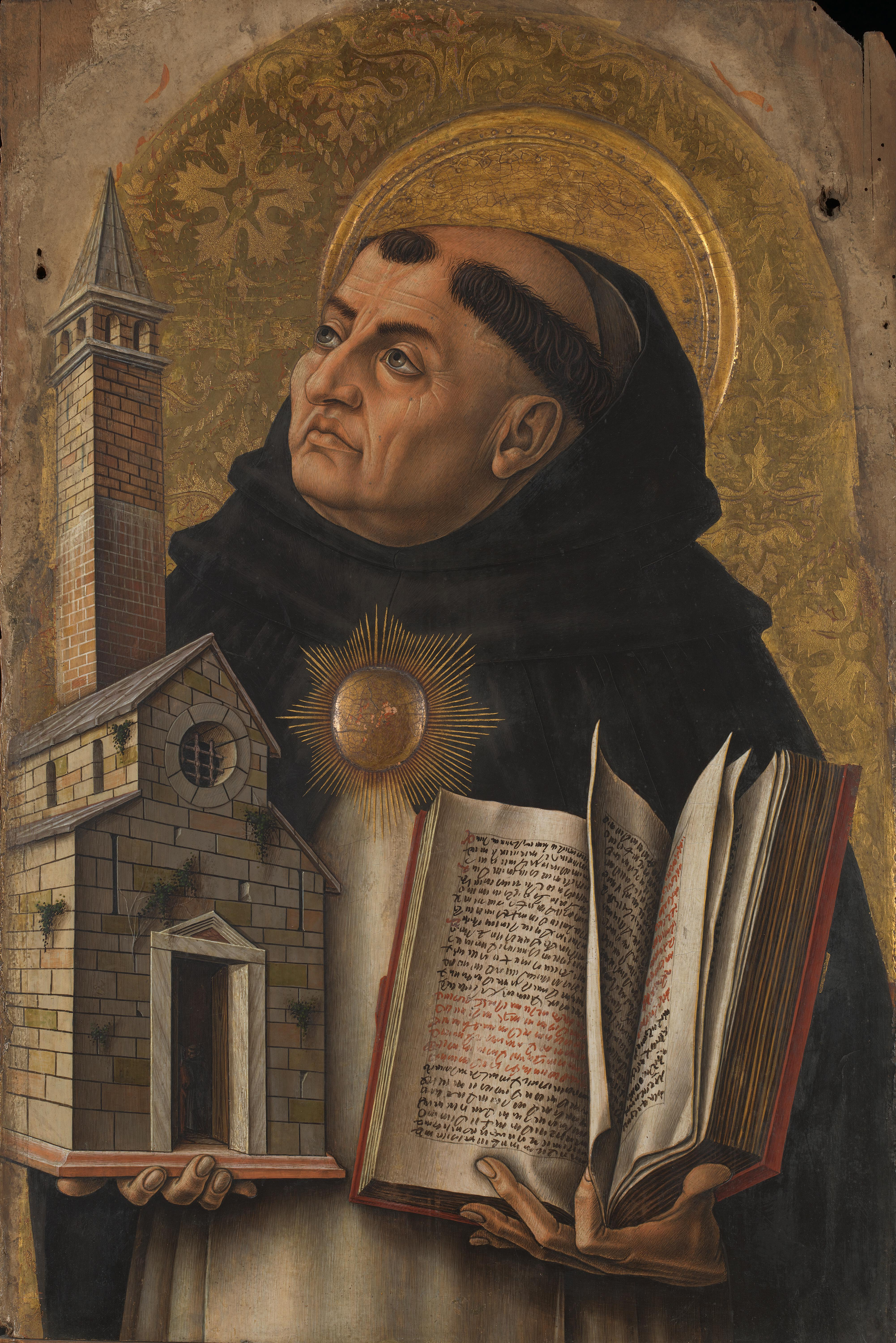Tomás de Aquino Frases famosas
Atribuídas
“Temo o homem de um só livro”
Hominem unius libri timeo. / Timeo hominem unius libri.
esta frase é citada por Paulin Limayrac, na obra "Revue des Deux Mondes", tome 7, 1844; "Revue littéraire" como de Cícero.
Atribuídas
Atribuídas
Fonte: Suma Teológia: Parte II: Questão 11 - Artigo 3 http://www.newadvent.org/summa/3011.htm#article3
Tomás de Aquino frases e citações
Tomás de Aquino: Frases em inglês
Summa Contra Gentiles II, 18.2 (see also Summa Theologica I, q. 45, art. 3 ad 2)
“To scorn the dictate of reason is to scorn the commandment of God.”
Fonte: Summa Theologica (1265–1274) I-II, q. 19, art. 5
in Aquinas: Selected Political Writings (Basil Blackwell: 1974), p. 183
Commentary on the Sentences of Peter Lombard
in Aquinas: Selected Political Writings (Basil Blackwell: 1974), p. 183
Commentary on the Sentences of Peter Lombard
“It must be said that charity can, in no way, exist along with mortal sin.”
Quaestiones disputatae: De caritate (ca. 1270) http://dhspriory.org/thomas/QDdeVirtutibus2.htm#6
“Sing, my tongue, the Savior's glory,
Of His Flesh the mystery sing;
Of the Blood, all price exceeding,
Shed by our immortal King.”
Pange, lingua, gloriosi
Corporis mysterium
Sanguinisque pretiosi,
Quem in mundi pretium
Fructus ventris generosi
Rex effudit gentium.
Pange, Lingua (hymn for Vespers on the Feast of Corpus Christi), stanza 1
“Law: an ordinance of reason for the common good, made by him who has care of the community.”
Summa Theologica (1265–1274), Unplaced by chapter
Summa Theologica Question 25 Article 6 http://www.ccel.org/ccel/aquinas/summa.FP_Q25_A4.html
Summa Theologica (1265–1274), Unplaced by chapter
“We can open our hearts to God, but only with Divine help.”
Quaestiones de veritate disputatae q 24, art. 15, ad 2
Summa Contra Gentiles, I, 6.4 (trans. Anton C. Pegis)
“Not everyone who is enlightened by an angel knows that he is enlightened by him.”
I, q. 111, art. 1, ad 3
Summa Theologica (1265–1274)
“Concerning perfect blessedness which consists in a vision of God.”
Summa Theologica (1265–1274), Unplaced by chapter
“One who liberates his country by killing a tyrant is to be praised and rewarded.”
Trans. J.G. Dawson (Oxford, 1959), 44, 2 in O’Donovan, pp. 329-30
Commentary on the Sentences of Peter Lombard
Part I, Question 1, Article 1; tr. Fathers of the English Dominican Province (1920, New York: Benziger Bros.)
Summa Theologica (1265–1274)
Verbum Supernum Prodiens (hymn for Lauds on Corpus Christi), stanza 5 (O Salutaris Hostia)
Sermon on the Apostles' Creed (1273), prologue (trans. Joseph B. Collins)
Variant translation: Now slavery has a certain likeness to death, hence it is also called civil death. For life is most evident in a thing's moving itself, while what can only be moved by another, seems to be as if dead. But it is manifest that a slave is not moved by himself, but only at his master's command.
Chapter 14 https://www.pathsoflove.com/aquinas/perfection-of-the-spiritual-life.html#chapter14
On The Perfection of the Spiritual Life https://www.pathsoflove.com/aquinas/perfection-of-the-spiritual-life.html (1269-1270)
Original: (la) Vita enim in hoc maxime manifestatur quod aliquid movet se ipsum; quod autem non potest moveri nisi ab alio, quasi mortuum esse videtur.
